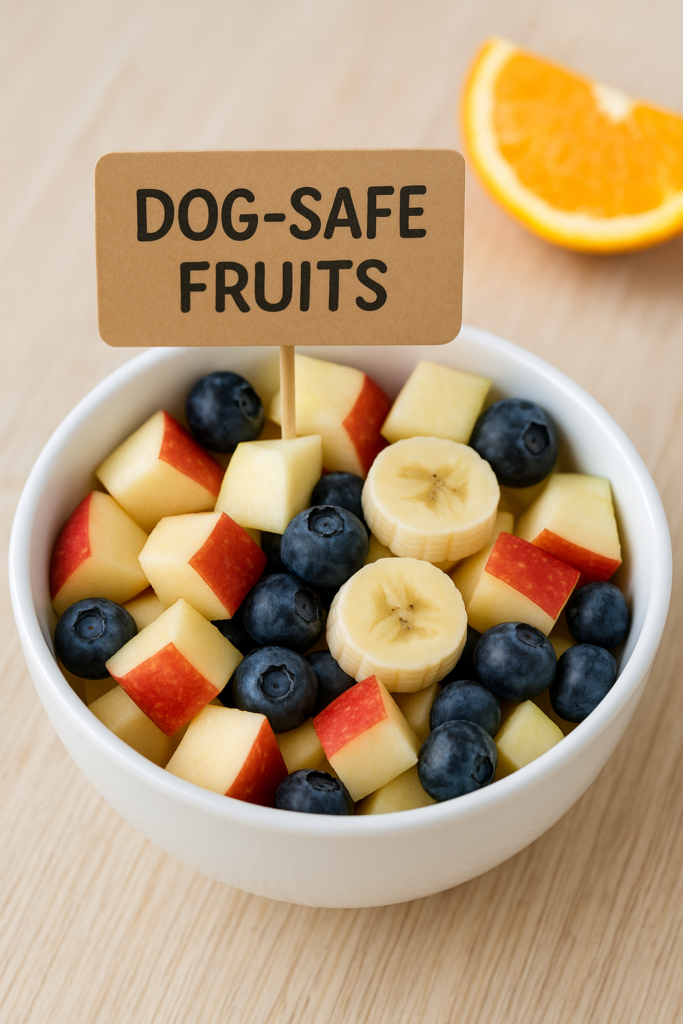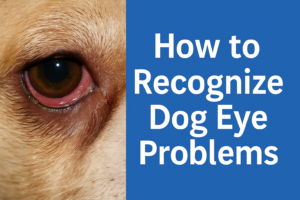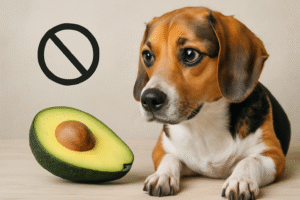Medical Disclaimer: This content is for informational purposes only and does not substitute professional veterinary advice. Always consult your vet before changing your dog’s diet.
Table of Contents
Introduction
As a Canadian veterinarian, I often hear this question from thoughtful dog owners: can dogs eat oranges? It’s a fair concern many of us snack on this juicy fruit and wonder if our furry companions can enjoy it too. You’re not alone in wanting to give your dog the best, and fruits can seem like a healthy way to show love.
The good news? Yes, dogs can eat oranges in moderation but there are crucial dos and don’ts. From sugar content to digestive sensitivity, not every dog will tolerate citrus the same way. I’ve seen both the benefits and the bellyaches oranges can bring, and in this guide, I’ll help you understand exactly when, how, and if you should offer this vibrant fruit to your pup.
Let’s break down everything you need to know in this vet-approved, easy-to-follow dog nutrition guide including better dog-safe fruits for sensitive tummies.
🐾 Key Takeaways: Can Dogs Eat Oranges?
| Key Point | Summary |
|---|---|
| Yes, but in moderation | Most dogs can eat small amounts of orange safely—about 1–3 segments depending on size. |
| Prep is crucial | Always remove the peel, seeds, and white pith before feeding. |
| Some dogs should avoid it | Dogs with diabetes, kidney issues, or sensitive stomachs should not eat oranges. |
| Start slow | Introduce just a small piece and monitor your dog’s reaction. |
| Vet’s advice matters | Always ask your vet, especially if your dog has health concerns or is on a special diet. |
Oranges can be part of a dog-safe fruits list when offered properly. Use this article as your go-to dog nutrition guide for citrus and beyond.
Why Some Dogs Might Like Oranges
Also See: https://doglifeexpert.com/hydrotherapy-for-dogs-7-proven-benefits/

If you’ve ever peeled an orange near your dog, you may have noticed that eager sniff or curious glance. Dogs are drawn to new smells and textures, and oranges can seem like a treat. But before asking can dogs eat oranges? at snack time, it’s good to understand what nutritional role this fruit can play.
Clinical Nutritional Snapshot
If you’ve been wondering can dogs eat oranges and actually benefit from them, the answer is yes—in small, occasional servings. Oranges offer a few helpful nutrients that support overall well-being.
- Vitamin C: While dogs synthesize their own, added vitamin C can help during stress, illness, or aging.
- Fiber: Supports digestion and can firm up stools in dogs with mild irregularity.
- Potassium: Important for nerve function and muscle control.
- Antioxidants: Can help fight cellular damage and inflammation.
- Low in calories: Compared to most processed dog treats, oranges are a lighter snack option.
As a vet, I occasionally recommend orange pieces as a hydrating post-walk treat especially for large, active breeds. That said, even if can dogs eat oranges is a yes, the real value lies in how and when they’re offered.
When Vitamin C Can Help
During illness or post-surgery recovery, dogs may benefit from a boost in antioxidants. At my Ottawa clinic, I once treated a Golden Retriever with a GI infection who refused her usual kibble. She responded well to a few small bites of orange gentle hydration and nutrition without overwhelming her sensitive stomach.
Again, just because can dogs eat oranges is technically true, doesn’t mean all dogs should.
Personal Insight: My Senior Retriever & Orange Slices
My senior retriever Bailey developed a late-in-life love for oranges. During grooming sessions, I’d reward her with a small peeled segment. She adored it. But I kept it to once a week too much sugar, even from fruit, can be a concern in older dogs.
So can dogs eat oranges regularly? Not quite. It’s best seen as a treat, not a dietary staple. Balance and moderation are key in any dog nutrition guide.
When Oranges Are NOT Safe

Just because the answer to can dogs eat oranges is usually yes, doesn’t mean it’s a universal green light. Some dogs react poorly to citrus, and others have conditions that make oranges a bad idea altogether.
Conditions That Worsen with Citrus
Here’s a quick table outlining health issues where oranges should be avoided:
| Health Condition | Why to Avoid Oranges |
|---|---|
| Diabetes | High natural sugars can spike blood glucose levels. |
| Kidney disease | Elevated potassium may burden impaired kidneys. |
| Sensitive stomach | Citric acid may trigger vomiting or diarrhea. |
| Food allergies | Citrus allergies (rare but real) may cause reactions. |
| Obesity | Sugar adds empty calories, slowing weight loss. |
Even healthy dogs may not tolerate the fruit well if overfed.
Signs of a Bad Reaction
If you’re trying oranges for the first time, monitor your dog for:
- Loose stool or diarrhea
- Vomiting
- Excessive drooling
- Lethargy
- Scratching or itching (possible allergic reaction)
If any of these occur, stop offering oranges and consult your vet immediately.
Breeds & Age Groups That Need Caution
Some dogs are naturally more prone to digestive upset. In my clinical experience, the following groups require extra care:
- Brachycephalic breeds (like Bulldogs or Pugs): often have sensitive digestion.
- Toy breeds (like Yorkies or Chihuahuas): smaller digestive tracts mean even one segment might be too much.
- Senior dogs: slower metabolism and higher risk for diabetes or kidney disease.
- Puppies: developing digestive systems aren’t always citrus-friendly.
So again, can dogs eat oranges? Yes, but in these cases, it’s best to skip or seek your vet’s green light. When in doubt, reach for milder dog-safe fruits.
Safe Feeding Guide: From a Vet’s Perspective

If you’ve decided to offer oranges to your dog, it’s vital to do it the right way. Even when the answer to can dogs eat oranges is yes, proper prep and moderation are everything. Here’s your vet-approved dog nutrition guide for safe orange feeding.
5-Minute Home Checklist ✅
Before offering any orange, run through this quick checklist to ensure it’s a safe snack:
- Is your dog diabetic, allergic, or has kidney issues? (If yes, skip!)
- Did you remove all seeds, peel, and white pith?
- Is this your dog’s first time trying oranges? (If yes, start with a tiny amount.)
- Is the orange fresh and washed thoroughly?
- Are you giving no more than 1–3 segments?
If you can tick all five, you’ve got the green light to share. Still wondering, can dogs eat oranges without risks? Only if all these steps are followed carefully.
Step-by-Step Safe Serving
- Choose the right orange: Navel or mandarin oranges are best. Avoid sour or overripe ones.
- Peel completely: Orange peel is tough, indigestible, and can cause GI issues.
- Remove seeds & pith: Seeds may contain trace cyanide; pith can irritate the gut.
- Slice into bite-sized bits: For small breeds, further reduce the size of each segment.
- Serve fresh, not juiced: Orange juice even homemade is too acidic and sugary.
Creative Treat Ideas
Need ways to make oranges more engaging? Try:
- Frozen orange bites: Perfect for warm days or post-walk cooldowns.
- Mixed fruit bowl: Combine with apples or blueberries (both dog-safe fruits).
- Orange-infused water: Soak slices briefly, then discard them before serving.
Portion Control Tips by Dog Size
| Dog Size | Max Segments per Serving | Frequency |
|---|---|---|
| Toy (<10 lbs) | ½ segment | 1x/week |
| Small (10–20 lbs) | 1 segment | 1–2x/week |
| Medium (20–50 lbs) | 2 segments | 1–2x/week |
| Large (>50 lbs) | 3–4 segments | 1–2x/week |
Too much orange even if you’ve verified that can dogs eat oranges applies to your pet can cause sugar spikes and digestive issues. Stick to vet-advised amounts.
Bottom Line
Can dogs eat oranges? Yes, but only with thoughtful preparation, correct portions, and monitoring. Treat it as a special snack, not a dietary staple.
Risks of Feeding Oranges

While it’s reassuring to know that can dogs eat oranges has a “yes” attached to it, there are still important risks to be aware of. Not every dog tolerates citrus well, and even those that do can suffer if oranges are fed improperly or too often.
Here’s your revised section with the focus keyword “can dogs eat oranges” naturally included 5 times:
Acidity and Digestive Sensitivity
Even though the answer to can dogs eat oranges is generally yes, citric acid in oranges can irritate some dogs’ stomachs. At my Ottawa clinic, I’ve treated dogs with vomiting and diarrhea after just a few juicy segments.
Signs your dog may not tolerate oranges well:
- Soft or loose stool
- Audible stomach gurgling
- Lethargy or discomfort post-snack
- Burping, licking lips, or pawing at the mouth
If your dog shows these signs, pause and consider safer dog-safe fruits like apples or bananas.
High Sugar Impact
Natural sugar is still sugar. Oranges contain about 9g of sugar per 100g, and over time, this can add up especially for sedentary or diabetic pets.
Risks of too much sugar:
- Weight gain
- Insulin resistance or worsened diabetes
- Dental issues, especially if teeth aren’t brushed regularly
The real question isn’t just can dogs eat oranges it’s how much sugar is too much for your dog? Always factor in their size, activity level, and existing health conditions.
Orange Parts to Avoid
Not every part of the fruit is dog-friendly. To ensure that can dogs eat oranges remains a “yes” for your pup, avoid these parts entirely:
- Peels: Contain bitter oils and are hard to digest.
- Seeds: Pose choking risks and contain trace cyanide.
- Pith: The white stringy layer may lead to GI discomfort.
Only offer clean, peeled, and deseeded orange segments.
Canadian Cost of Orange-Based Dog Treats
If you’re short on time, you may be wondering can dogs eat oranges in the form of ready-made treats? Yes, but be selective. Here’s a cost comparison between fresh fruit and orange-flavored commercial options in Canada:
| Product Type | Example Brand/Product | Approx. Cost (CAD) | Notes |
|---|---|---|---|
| Fresh Orange (1) | Grocery store, organic navel orange | $0.80–$1.25 | Must peel and prep |
| Orange Dog Biscuits | Fruitables Skinny Minis – Pumpkin & Orange | $8.99 (170g) | Small-batch baked |
| Freeze-Dried Chips | Doggie Naturals Fruit Treats | $11.50 (120g) | 100% fruit, no additives |
| Citrus-Flavored Chews | Zuke’s Superfood Blend | $10.99 (170g) | Blended with other fruits |
While fresh oranges are more budget-friendly, they require careful prep. Commercial treats can be safe if they’re free of added sugars and artificial flavors. Whether you go fresh or packaged, it’s essential to verify can dogs eat oranges in the form you’re offering.
So yes, can dogs eat oranges safely at home? Absolutely if you choose the right form and serve it properly.
Safer Fruit Alternatives

Sometimes, even though the answer to can dogs eat oranges is yes, your dog may simply not like them or tolerate them well. Thankfully, there’s no shortage of other dog-safe fruits that are gentler on the digestive system and just as rewarding for your pup.
Vet-Recommended Dog-Safe Fruits
| Fruit | Benefits | Cautions |
|---|---|---|
| Apples | Low-calorie, high in fiber and vitamin A | Remove seeds and core |
| Blueberries | Packed with antioxidants and low in sugar | Serve whole or mashed |
| Bananas | High in potassium and gentle on the gut | Moderation—high sugar |
| Watermelon | Hydrating and low-calorie | Remove rind and seeds |
| Strawberries | Rich in vitamin C and fiber | Can be mashed for small dogs |
| Cantaloupe | Moisture-rich and easy to digest | Remove rind and seeds |
These fruits often show up in my dog nutrition guide recommendations when pups have sensitive stomachs or conditions like diabetes, where oranges may not be ideal.
Vet Tips for Introducing New Fruits
- Start with a fingertip-sized portion
- Introduce only one fruit at a time
- Watch for reactions over 24–48 hours
- Avoid combining citrus and non-citrus fruits in one treat
By choosing a fruit tailored to your dog’s needs, you avoid the risks while still keeping snack time fun and nutritious. And remember, even if the answer to can dogs eat oranges is yes, these other fruits may work even better for your pup.
Frequently Asked Questions: Can Dogs Eat Oranges?
These are some of the top pet owner concerns I’ve encountered in-clinic and online when it comes to oranges. Clear answers can help you feel confident and safe when sharing fruit with your dog.
Can Dogs Eat Orange Peels?
No. Orange peels are not digestible and may cause intestinal blockages or stomach upset. They also contain essential oils that can be irritating to dogs. Stick to the peeled, seed-free flesh only.
Are Clementines or Mandarins Safer?
Yes, but they still require the same precautions. Clementines and mandarins are often sweeter than navel oranges, which means even higher sugar content. Feed no more than one small segment per 10 lbs of body weight, and always remove the peel and seeds.
Can Dogs Drink Orange Juice?
In general, no. Even freshly squeezed orange juice is too acidic and sugary for dogs. Commercial juice is even worse due to added sugars and preservatives. It’s best to avoid giving any kind of juice altogether.
How Often Can My Dog Eat Oranges?
As a rule, no more than once or twice a week. Oranges should make up less than 10% of your dog’s daily calories. Overfeeding even safe fruits can disrupt the balanced nutrition your dog needs.
Can Oranges Help with Bad Dog Breath?
Not significantly. Oranges may provide a brief masking effect, but they don’t treat the underlying causes of halitosis like tartar buildup or gum disease. A better approach includes tooth brushing, dental chews, and professional cleanings.
What If My Dog Eats Too Many Oranges?
Don’t panic. Monitor for signs like diarrhea, vomiting, or bloating. If your dog consumed the peel or a large quantity of fruit, contact your veterinarian. In some cases, they may advise supportive care or an in-person evaluation.
These answers are part of a comprehensive dog nutrition guide because can dogs eat oranges is just one of many food-related decisions pet parents face daily.
Final Word From a Canadian Vet
So, can dogs eat oranges? Yes but only under the right conditions. Oranges can be a refreshing, vitamin-packed snack that supports hydration and adds variety to your dog’s diet. But they’re not for every dog, and not in every quantity.
Here’s what I recommend:
- Start slow: Test with a single piece and monitor.
- Prep properly: Always peel, deseed, and segment the orange.
- Know your dog’s limits: Age, breed, and health status all matter.
- Don’t overdo it: Even dog-safe fruits should only be occasional treats.
- Check with your vet: Especially if your dog is diabetic, has kidney issues, or is on medication.
In my Ottawa clinic, I’ve seen dogs thrive on a balanced diet with the occasional healthy treat like orange slices. But I’ve also treated GI upsets that were completely avoidable. That’s why using a dog nutrition guide and keeping up with vet visits is your best strategy.
If your dog doesn’t tolerate citrus well, remember there are dozens of other dog-safe fruits from blueberries to apples that offer great taste and nutrition without the risks. At the end of the day, the best treat is one your dog enjoys and handles well.
Have questions? Speak with your vet, and keep learning. Healthy treats should never replace a complete diet but they sure can brighten your dog’s day.





Pingback: 5 Proven Dog Acupressure Points with Digestive Issues [Vet Guide]